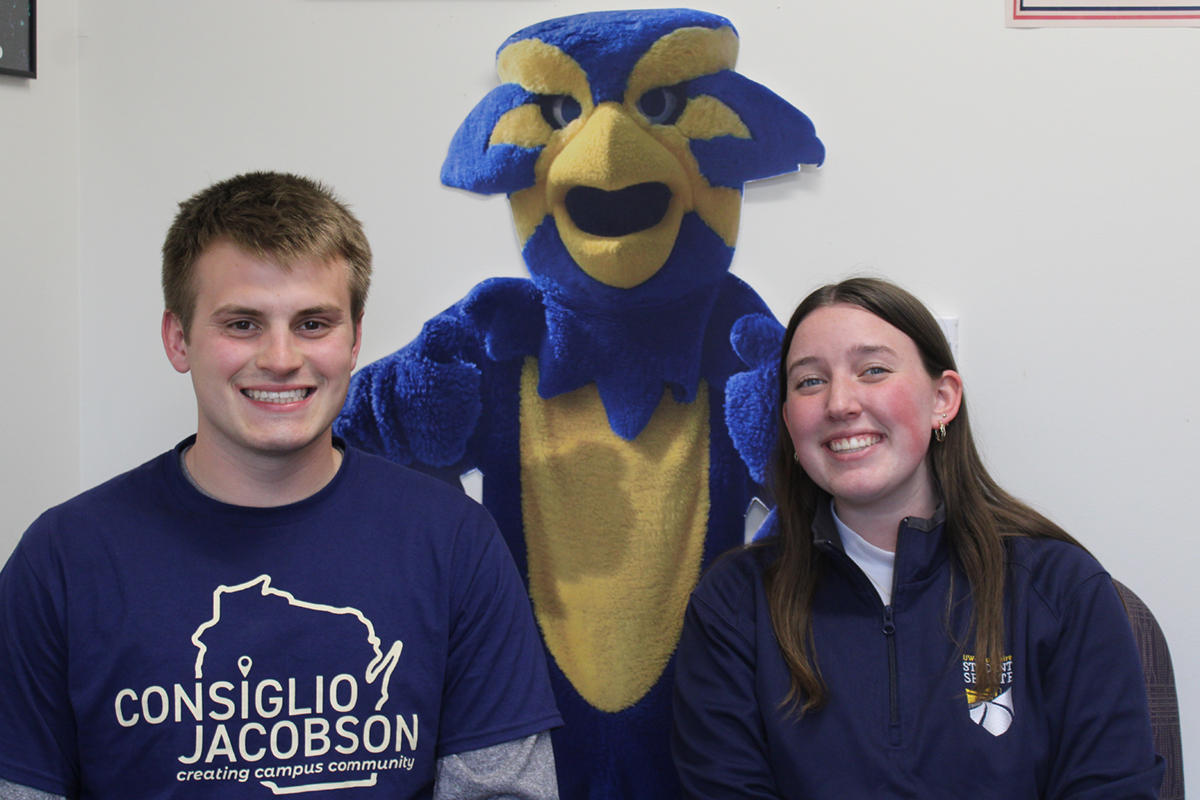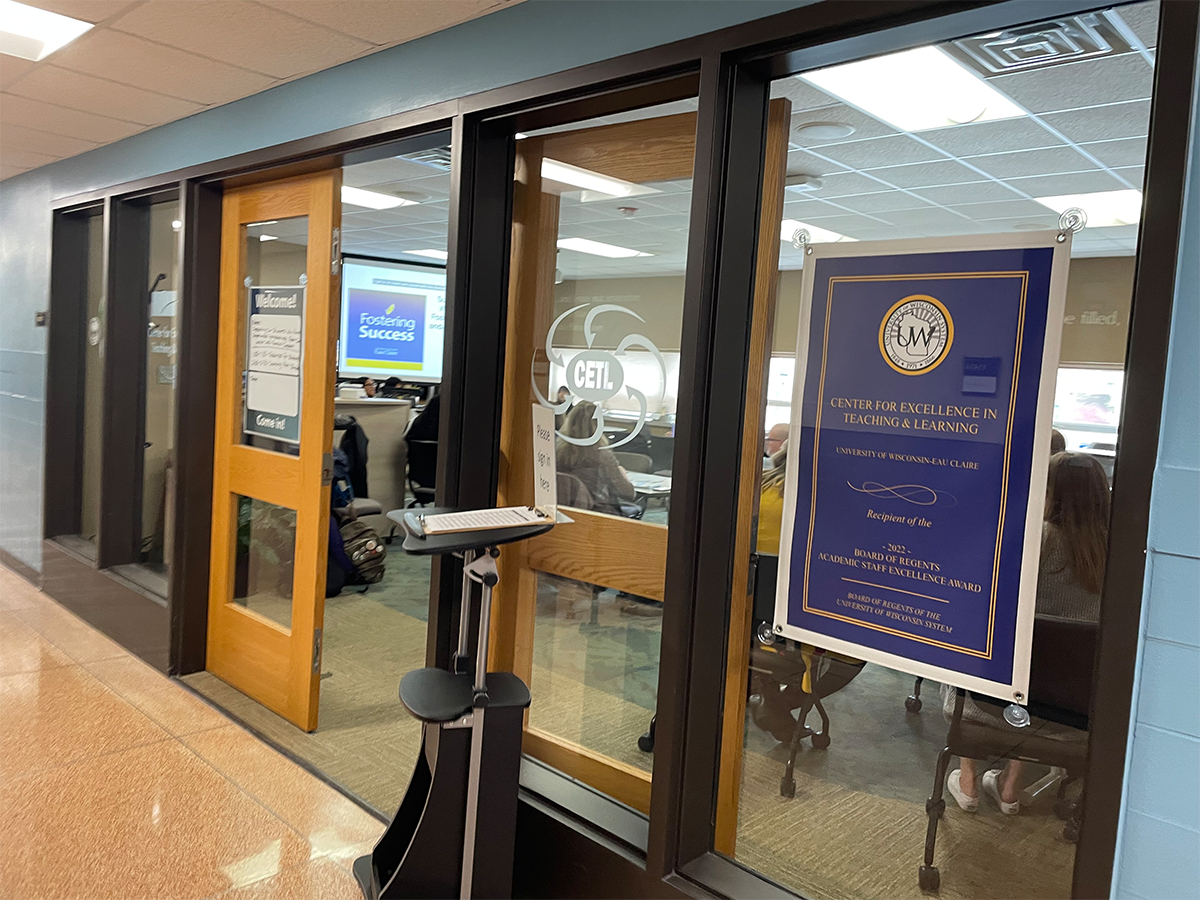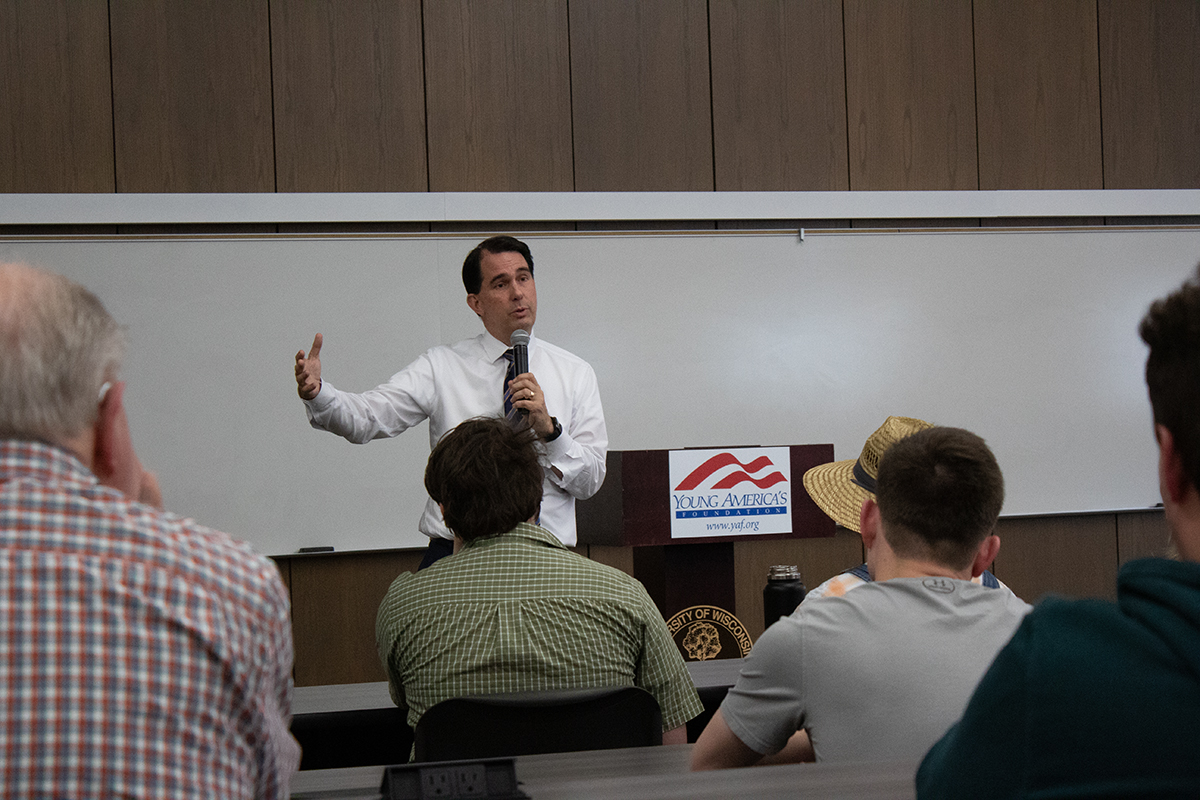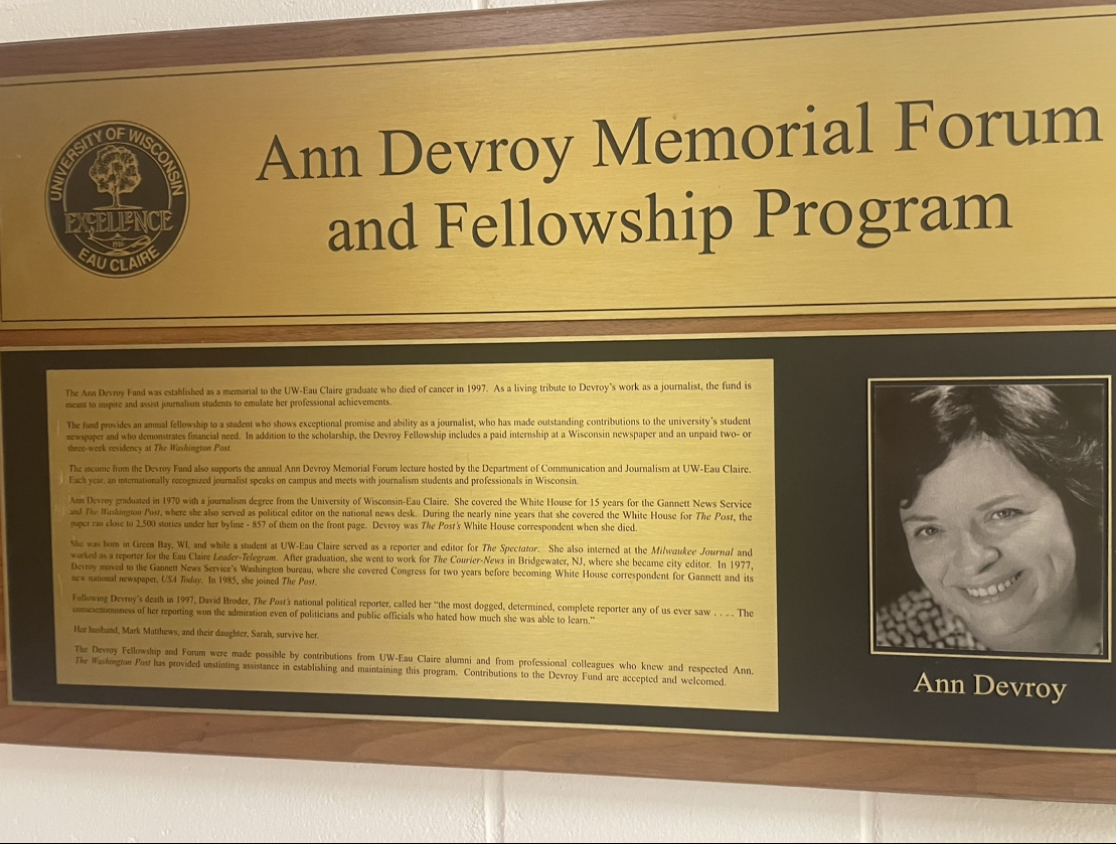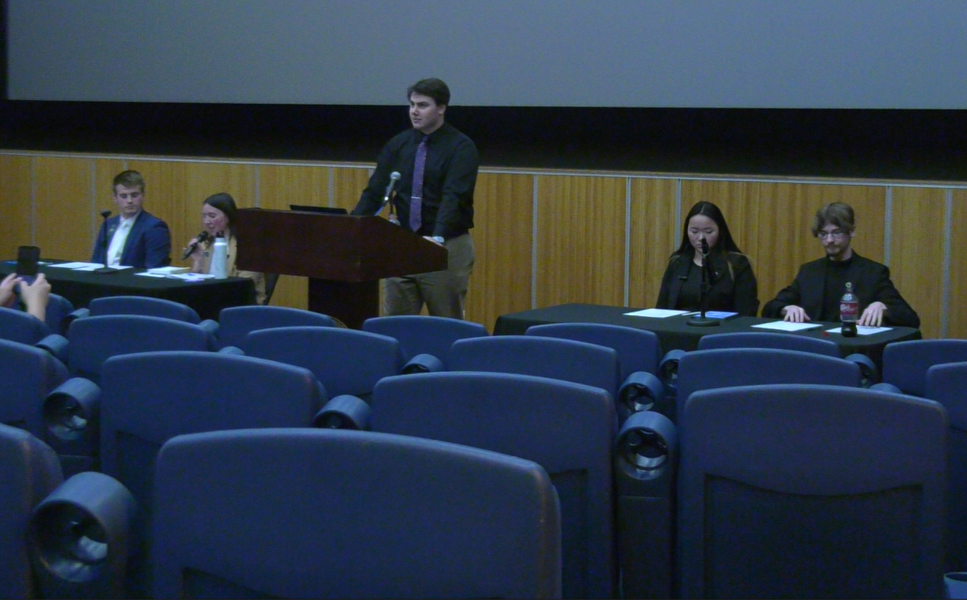The impact sports and athletes have had on politics and social movements around the world cannot be overstated, a renowned sports writer said Wednesday night.
“You can tell the history of race and racism just by looking at it through sports,” sports writer Dave Zirin said. “You can tell an amazing story.”
Zirin is the sports editor for the magazine “The Nation” and the host of Sirius XM’s radio show “Edge of Sports Radio.”
Zirin’s speech, “Not Just a Game: The Political Education of Sports,” was presented as part of the UW-Eau Claire’s Forum series. Zirin spoke to more than 150 people in Schofield Auditorium about the role sports has played in America’s political and social movements.
The 1968 Olympics had an important role in the Civil Rights movement, Zirin said. The African-American winners of the 200-meter race, Tommie Smith and John Carlos, raised their fists at the awards ceremony as a sign of support for human rights.
This act provided a voice for black citizens at the time, Zirin said. The athletes made a controversial political stand at a time when violence was at its peak.
“(Smith and Carlos) spent decades in the wilderness,” Zirin said, “but the stand they took still matters today.”
The Civil Rights movement was supported by several athletes. Jackie Robinson, the first African-American baseball player, was requested to speak more often than Martin Luther King Jr., Zirin said.
Women have benefited from sports as well, Zirin said. Women had to fight for their right to play sports. There was a time in history when women were not allowed to play sports, except in country clubs, and when they were allowed to play, they were still required to look pretty — in the early days of women’s tennis, the women were required to wear corsets.
“There is no word for how much it has changed women’s lives in this country,” Zirin said. “It makes sense that the women’s liberation movement has sports at the heart of it.”
Title IX, which eliminated gender discrimination in sports, gave women rights. Women were not just playing sports, they were displaying equality of gender. Currently, one out of three women play sports in school, but before Title IX, it was one out of 34, Zirin said.
Zirin also spoke about the role sports has currently. He mentioned Trayvon Martin’s case. Martin, a teenager from Sanford, Fla., was wearing a hoodie when he was killed by a neighborhood watch volunteer. The hoodie allegedly made Martin seem threatening. Some are calling the murder a hate crime. The volunteer, George Zimmerman, has not been charged of a crime.
The Miami Heat basketball team posed for a picture in tribute to Martin. This act brought light to the situation, they brought a political situation into the sports world, Zirin said.
Zirin interacted with the audience by calling members by name and making humorous comments. The audience laughed while he spoke.
Kristin Brown, an audience member said she enjoyed the speech even though she is not a sports fan.
“He presented sports from a thinking man’s mind,” Brown said.
Zirin also spent 20 minutes answering audience questions. He spent much of that time talking about the politics of the National Collegiate Athletic Association.
“It is an ugly, ugly sham from top to bottom,” he said. “It’s all built on this foundation of unpaid labor.”
For the current exploitative system to change, Zirin said, it will have to be the players who stand up to the regulators of the NCAA, just as Smith and Carlos used their position as Olympic medalists to fight the status quo of the ‘60s.
Zirin ended by paraphrasing historian and social activist Howard Zinn and telling the audience how understanding the past can help to influence the future.
“If we know the history,” he said, “it’s a guide to action now.”


